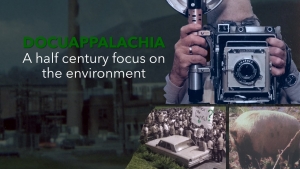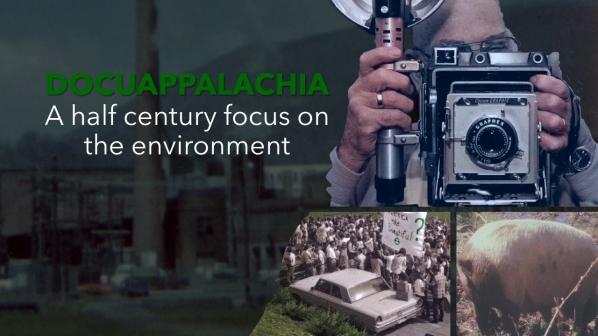Appalachian State University's Digital Humanities Lab brings together faculty, staff, and students across campus to network with other researchers, explore ideas and innovations related to digital humanities, and collaborate on research projects. We have forged relationships with many departments across the university as we believe in the power of interdisciplinary research. We have recently hosted workshops on geographic information system (GIS) mapping, text curation, and text analytics to ensure that our research community has the skills they need to succeed.
Documentary film production is a notable area of strength within our group. Dr. Beth Davison and Dr. Kristan Cockerill directed and produced the film DocuAppalachia, which reflects on American environmental history in the 1970s and discusses how environmental history has changed and remained the same in the rural, southern Appalachian mountains. The directors use an untitled, silent film reel from the 1970s that was discovered in a storage location in Boone, North Carolina as a frame for the discussion. The film was praised by the Watauga Democrat and screened at the Blowing Rock Art and History Museum. Another notable documentary production that highlights the research of Appalachian's Digital Humanities community is The American Diplomat. This film premiered on February 15, 2022 on American Experience (PBS), PBS.org, and PBS video. Dr. Michael Krenn of Appalachian's Department of History served as Chief Historical Advisor to the film project. Dr. Krenn is also the author of "Black Diplomacy: African Americans and the State Department, 1945-1969," the book that inspired The American Diplomat. The film tells the story of three African American ambassadors during the 20th century, including their diplomatic efforts abroad and efforts to desegregate the State Department. The documentary has also been screened at the JFK Presidential Library. Learn more information about the Digital Humanities Lab @ Appalachian and to explore our communities' research projects on the Digital Humanities site.

